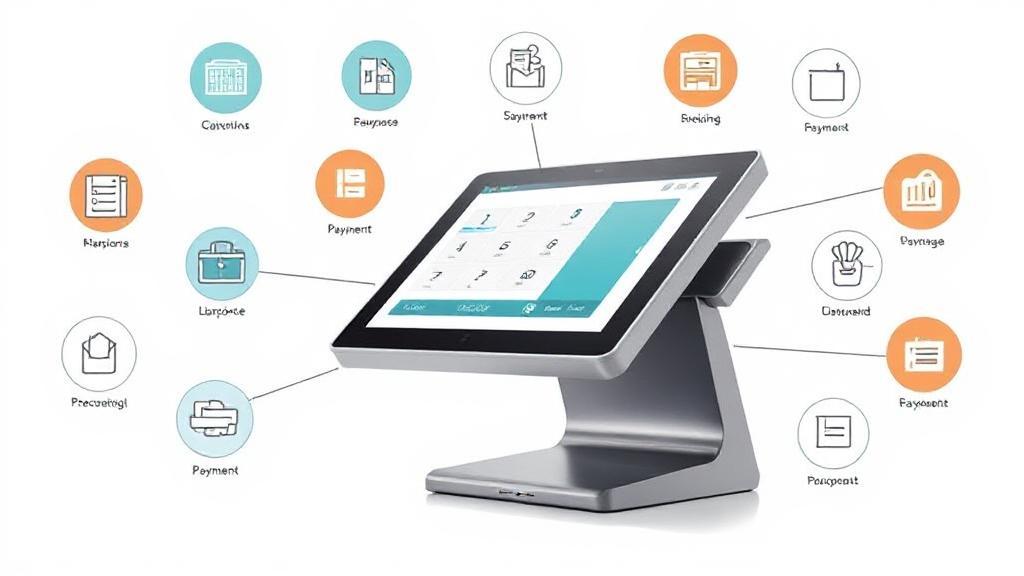Introduction to POS Systems
In today's fast-paced retail and hospitality environments, Point of Sale (POS) systems have become indispensable tools for businesses of all sizes. These systems are more than just cash registers - they're comprehensive solutions that combine hardware and software to process transactions, manage inventory, and gather valuable business insights.
What is a POS System?
A POS system is a combination of hardware and software that allows businesses to conduct sales transactions and manage various aspects of their operations. Modern systems have evolved from simple cash registers to sophisticated tools that support multiple business functions.
Core Components
-
Hardware:
- Touchscreen monitors or tablets
- Barcode scanners
- Receipt printers
- Cash drawers
- Credit card readers
-
Software:
- Transaction processing
- Inventory management
- Customer relationship management (CRM)
- Reporting and analytics
- Employee management
Benefits of Using a POS System
"What gets measured gets managed." - Peter Drucker
Implementing a POS system offers numerous advantages:
- Increased Efficiency: Speeds up checkout process and reduces human error by up to 50% compared to traditional methods
- Improved Accuracy: Reduces errors and discrepancies in sales data and inventory levels
- Better Inventory Management: Tracks stock levels in real-time, preventing stockouts and overstock situations
- Enhanced Customer Experience: Enables personalized service, loyalty programs, and targeted marketing campaigns
- Data-Driven Decisions: Provides detailed insights through sales reports, customer behavior analysis, and employee performance metrics
Types of POS Systems
1. Cloud-Based POS Systems
- Pros: Easy updates, remote access, lower upfront costs
- Cons: Dependence on internet connectivity
2. Traditional POS Systems
- Pros: Greater control, no reliance on internet
- Cons: Higher initial costs, more complex maintenance
3. Mobile POS Systems
Uses mobile devices for transactions and management
4. Hybrid POS Systems
Combines traditional and cloud-based features
Choosing the Right POS System
Consider Your Business Type
Important Considerations
- Scalability: Choose a system that can grow with your business
- Integration Capabilities:
- E-commerce platforms
- Accounting software
- Marketing tools
- Security Features:
- EMV compliance
- End-to-end encryption
- PCI DSS compliance
- Cost Factors:
- Initial hardware costs
- Monthly software fees
- Payment processing fees
- Training expenses
- Maintenance costs
Implementation Best Practices
-
Train Your Staff
-
Backup Your Data
- Transaction history
- Customer data
- Inventory records
- Employee information
Future Trends
The POS industry continues to evolve with technology. Watch for:
- Mobile POS Solutions
- Contactless Payments
- AI-Powered Analytics
- Cloud-Based Systems
For more detailed information, visit:
